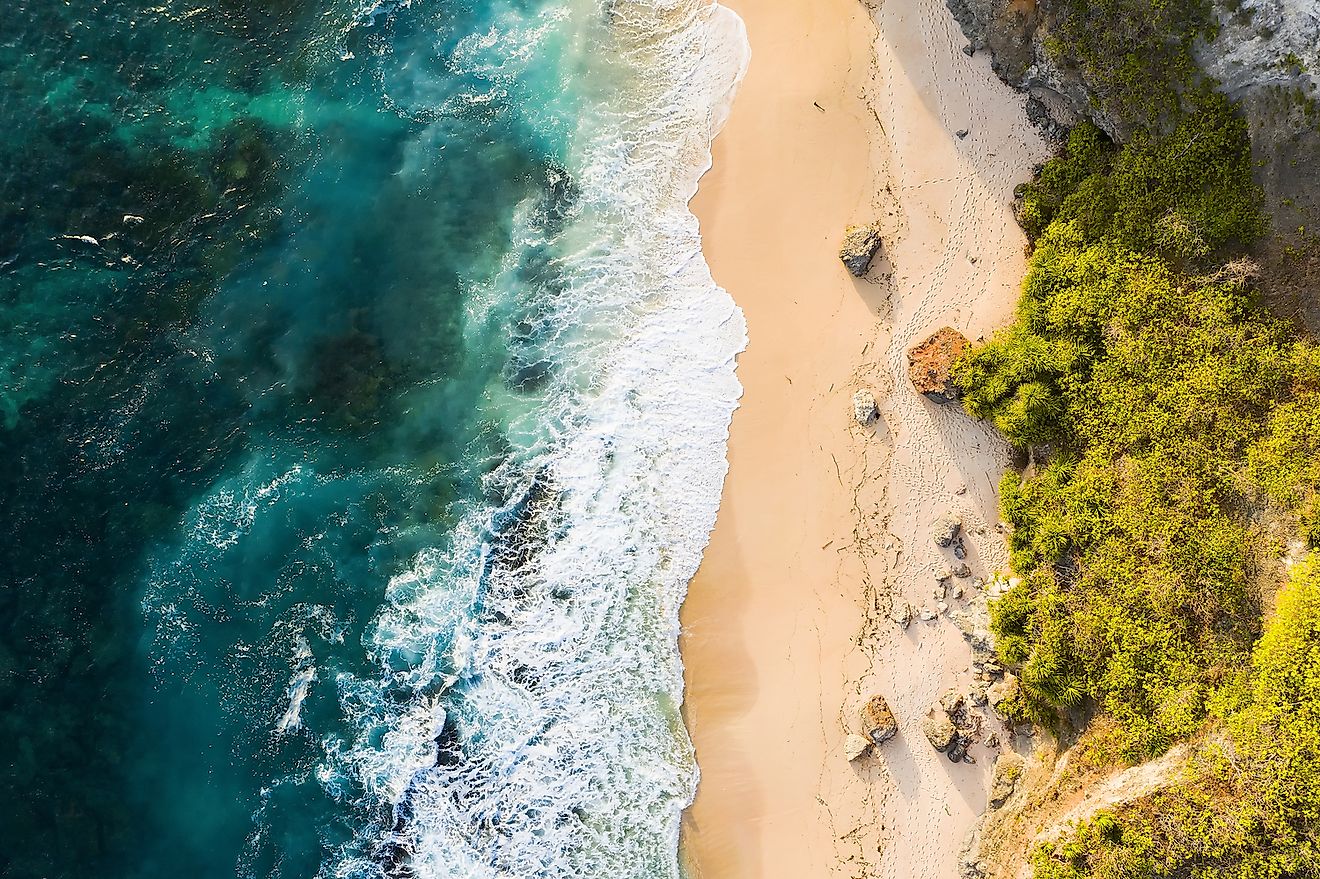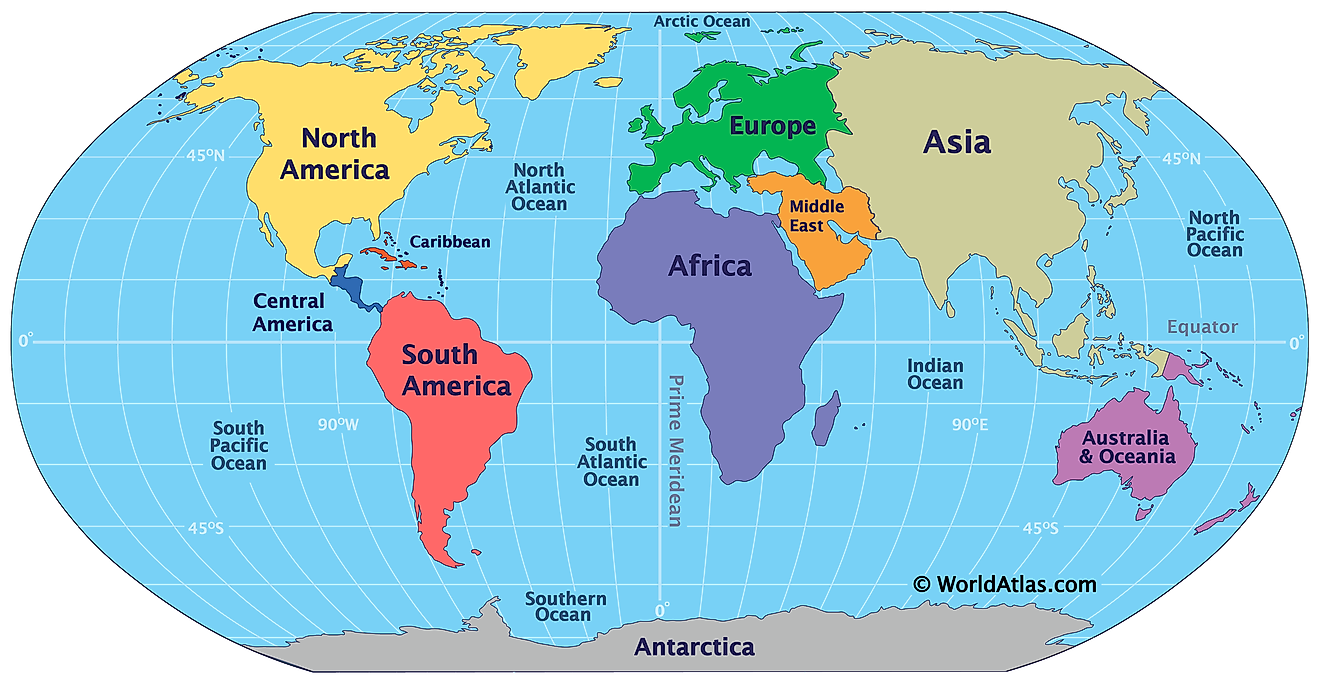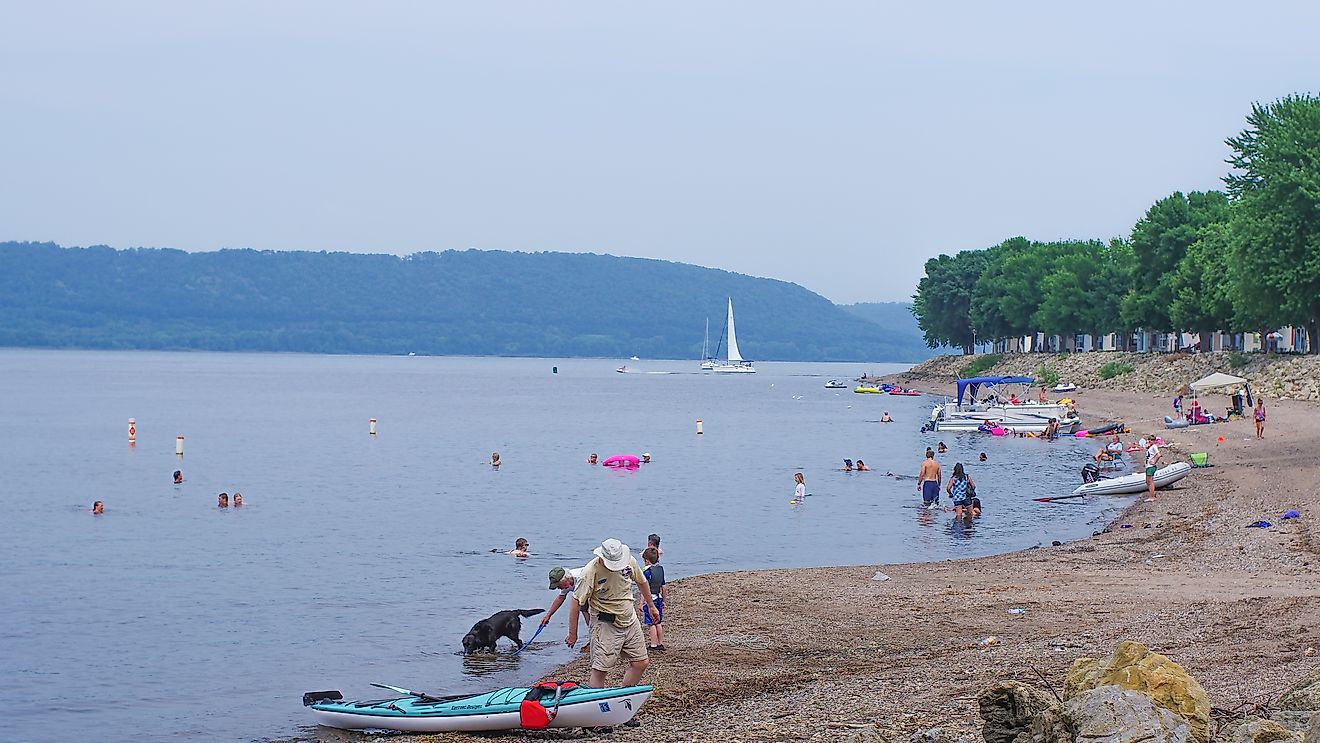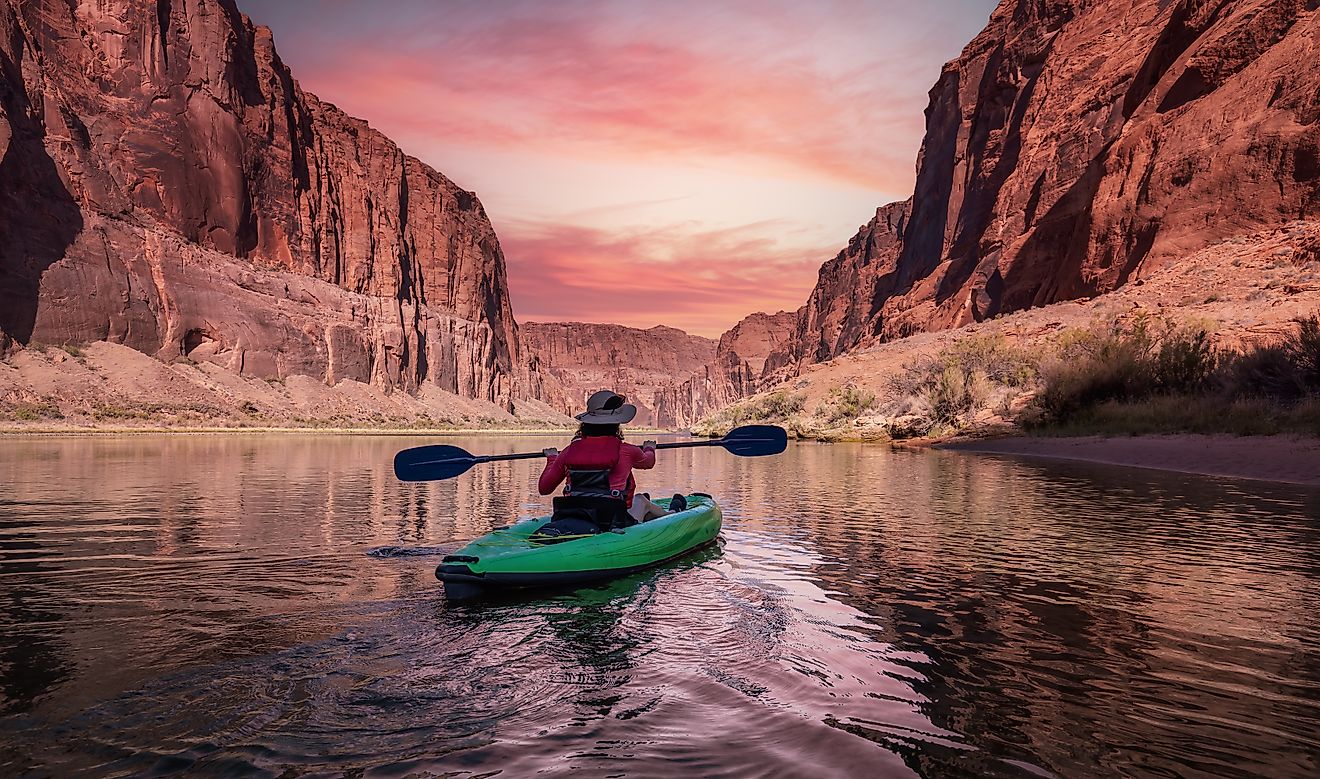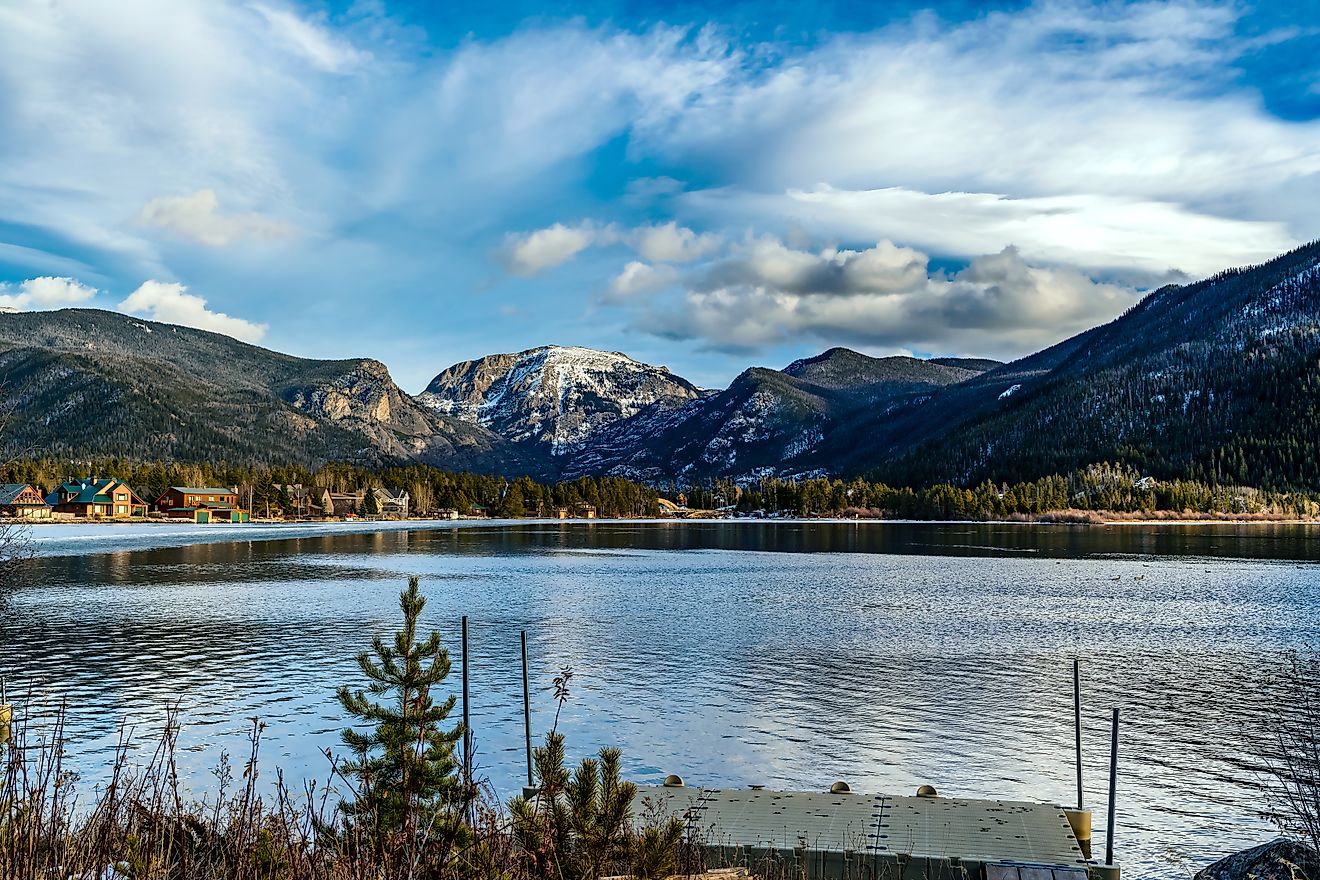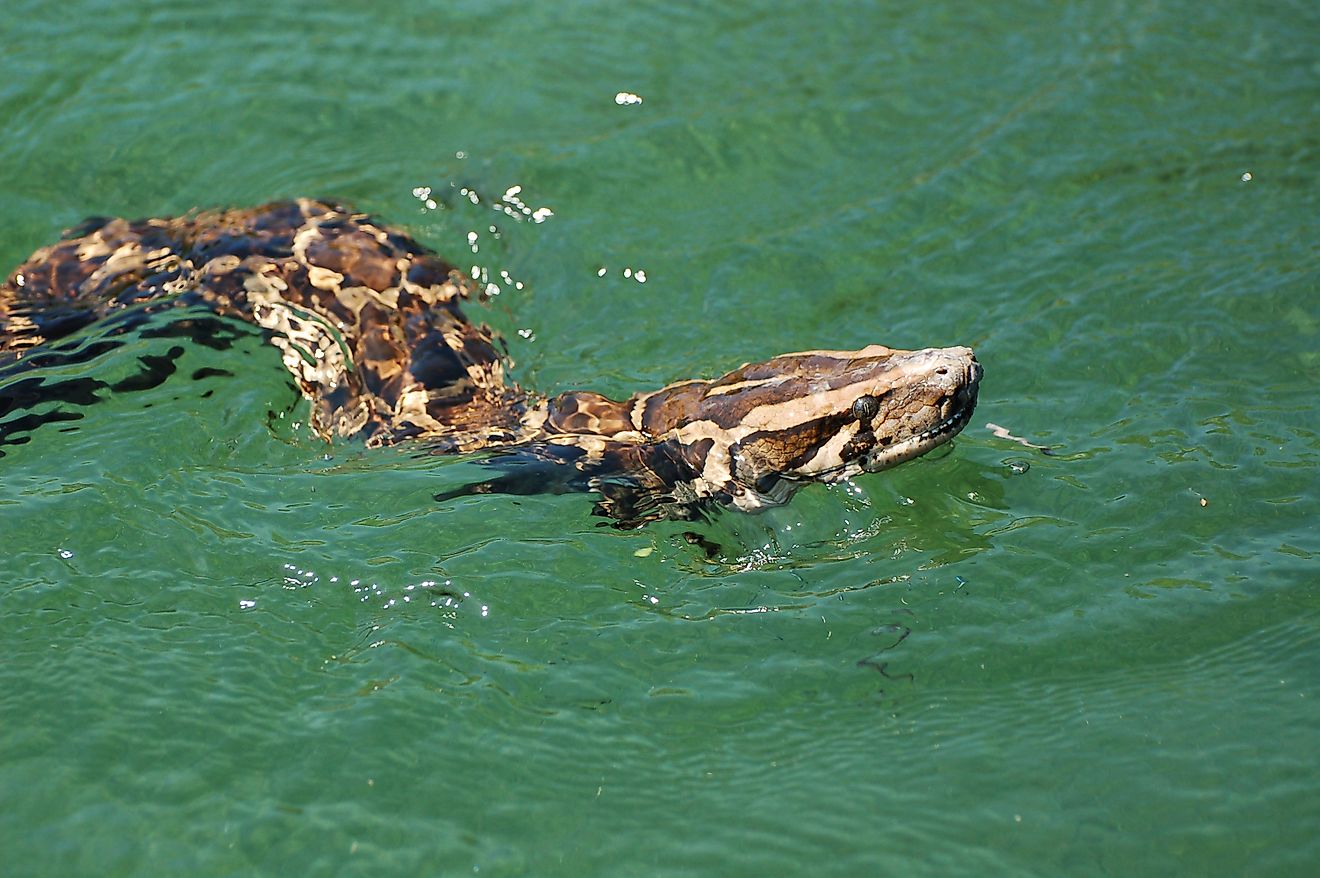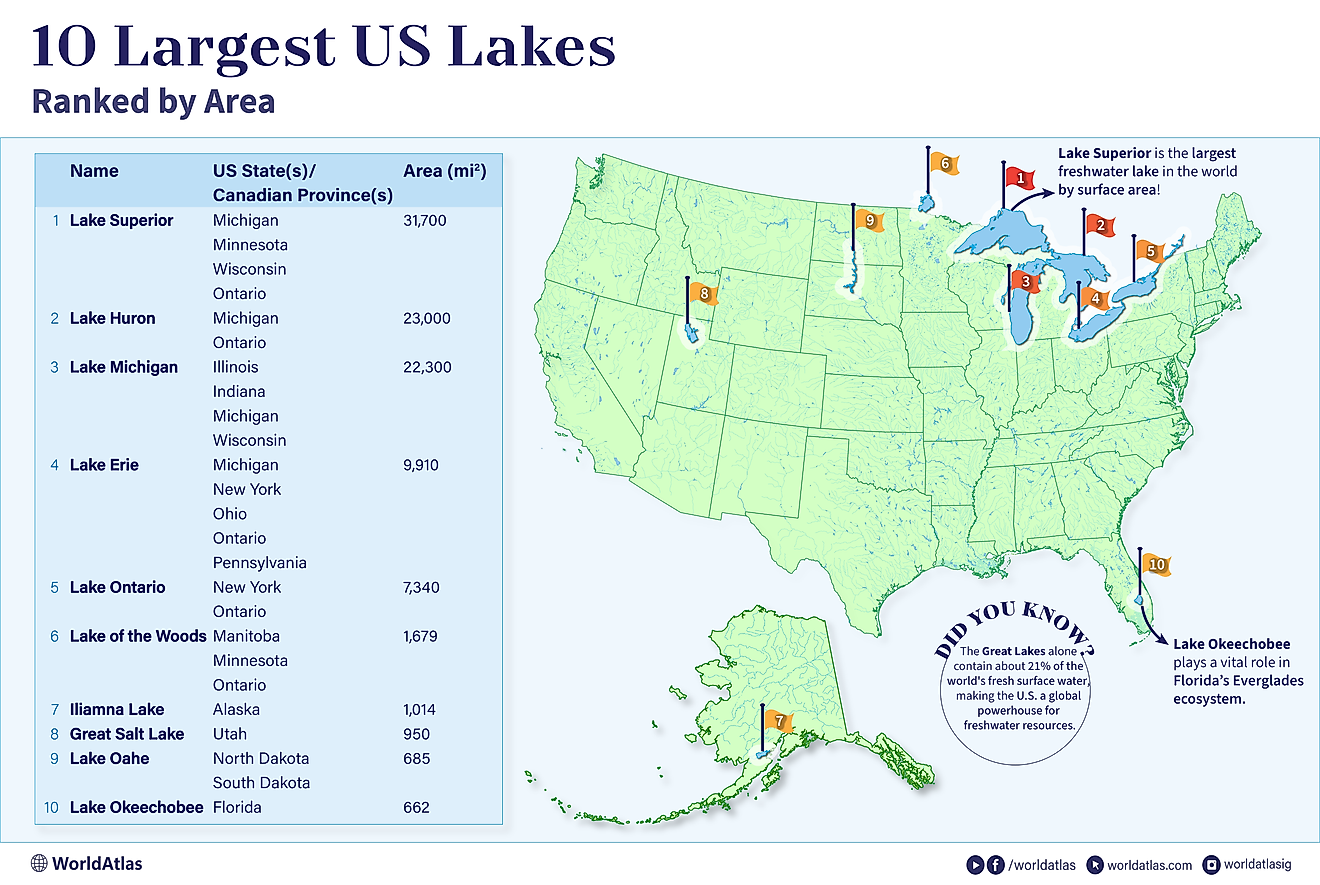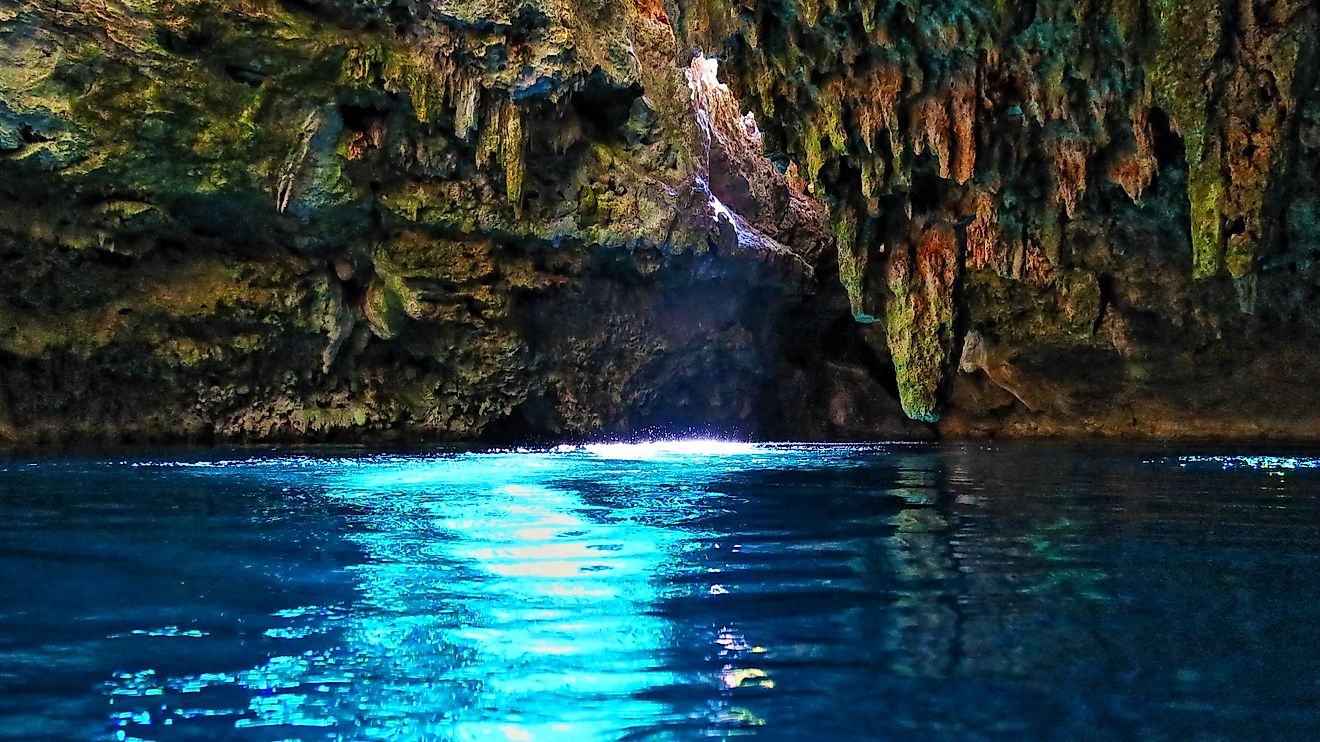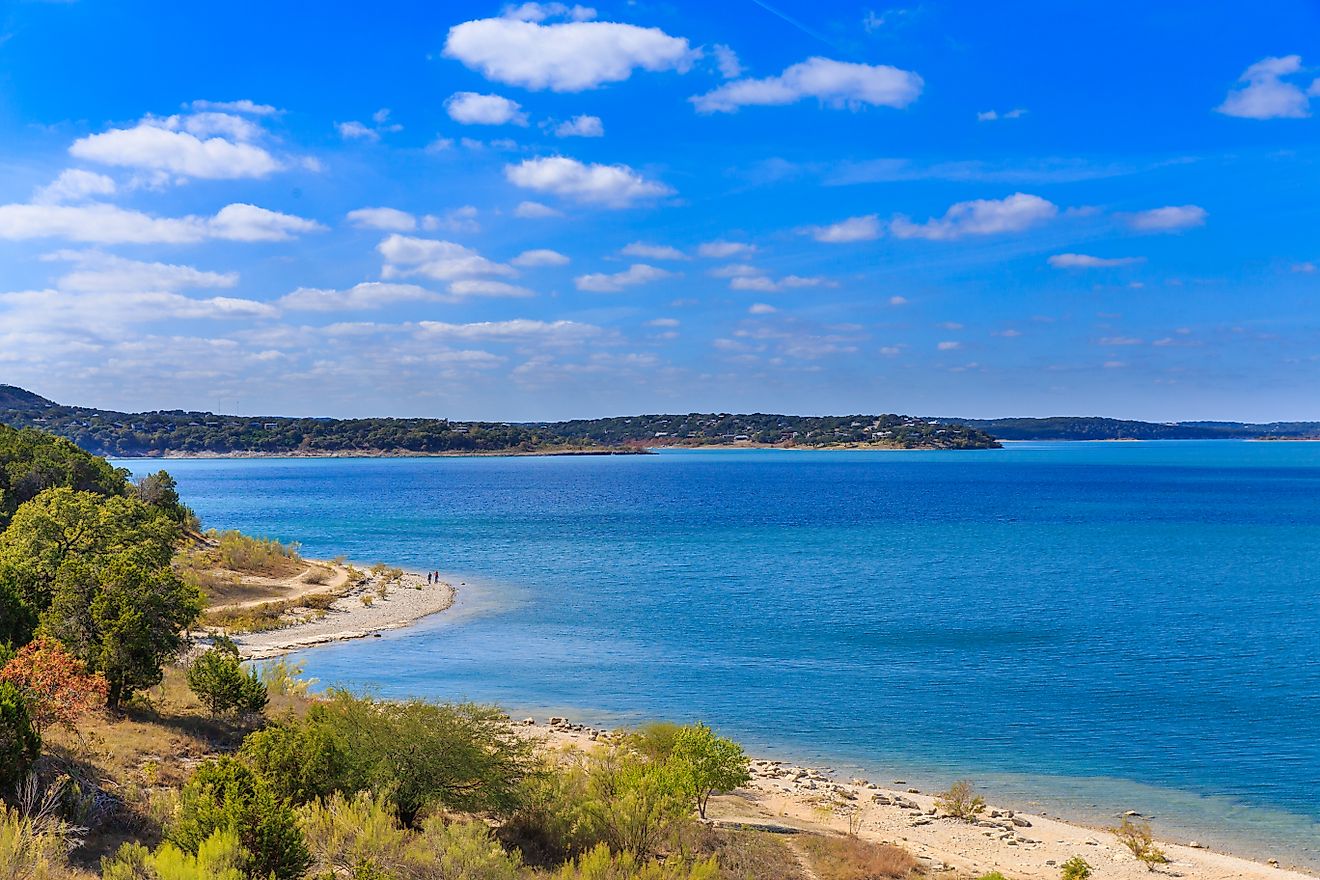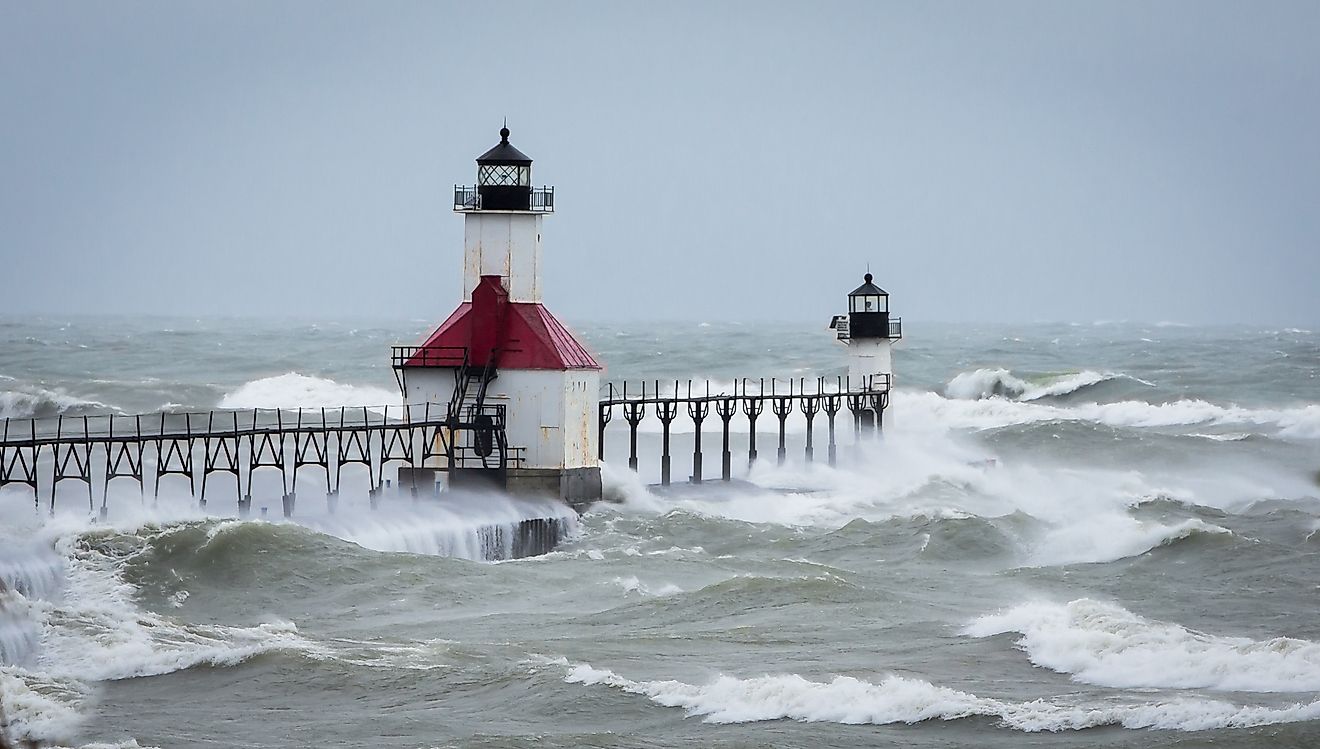
Lake Norman
Lake Norman, also known as the “inland sea” of North Carolina, was created between 1959 and 1964. The story of this lake began when Duke Power Corporation decided to build Cowans Ford Hydroelectric Station, the largest hydro station owned by Duke Power. As the station provides electricity to the Piedmont region of both South and North Carolina, the lake supplies Lincoln County, Catawba County, Iredell County, Charlotte, and other towns, particularly Cornelius, with water. The freshwater of Lake Norman originates from the Catawba River, confiscated by the Cowans Ford Dam, and outflows into Mountain Island Lake. The water body was named after Norman Cocke, former Duke Power president.
Geography Of Lake Norman

Lake Norman is 54.1 km long and 14 km wide. The lakeshore stretches for 840 km (520 miles), its surface area is more than 130 km2, and it reaches a depth of 34 m. It has an elevation of almost 230 m at full pond. It took the lake two years to be filled with water after the dam was constructed! The lake is crossed at different points by Interstate 77 and North Carolina Highway 150.
The clay and plastic soils of the lake solidify it, ensuring that it never breaks down. However, erosion has become an issue due to many factors, especially stormwater runoff.
The lake has a humid subtropical climate, with warm to hot summers and cold to mild winters. The population in the area is about 25,000.
Coal Ash Contamination?
According to some data, people who drink from this water will be harmed since the levels of radium in the groundwater have surpassed the EPA drinking water standards.
However, two different public quality reports were conducted in 2007. The first report analyzed the water quality in Lake Norman and four other lakes along the Catawba Chain. Various samples from different parts of the lakes were found to hold the best drinking water quality among all other samples.
As for the second report, a different procedure was followed, yet the same results came out. Using the Secchi disk, the water from the lake was monitored once every month from May to September, and the findings indicated good water quality.
Wildlife Of Lake Norman

There are about 60 islands above Lake Norman. Hence it has a high biodiversity of birds, fish, mammals, and plants, as most of them were artificially introduced.
The lake is filled with fish every year. Some fish that live there are the Blue Catfish, Bluegill, Brown Bullhead, Carp, Channel Catfish, Largemouth Bass, Perch, Rainbow Trout, Smallmouth Bass, Striped Bass (Stripers), Hybrid Striped Bass, and many others. A new species of freshwater jellyfish was found in the lake in the late 1990s.
Black bears, raccoons, foxes, shrews, mice, deer, songbirds, and many other kinds of birds are also found in the lake.
The trees around the lake are mostly silverling, hornbeam, yellow poplar, and sassafras. As for the flowering plants, the Indian mallow, baneberry, white snakeroot, and stork’s-bill are mainly found.
The foresters of the lake perform many important jobs, one of which is to plant 1,400 trees every year! They also use an organic compound to control the mosquitoes and limit their numbers.
Are Freshwater Fish Edible?
If you are eager to taste Lake Norman’s fish, it is recommended not to eat more than two meals a month of largemouth bass and once a week of striped bass.
Alligators And Snakes In Lake Norman
In 2000, sightings of alligators were reported in the lake. Then, the presence of two different alligators was confirmed, and one of them was 5.6 inches. Knowing that the water is fresh and sources from the Catawba River, the place where these creatures came from is unknown, and how they even survived in the water is dazzling. However, rest assured that wildlife control officers removed both of the alligators.
A snake was also found to be one of the largest water snakes, which was 5.5 feet long. Not aware that the snake was harmless, the family killed it at sight.
Normie, the Lake Monster
The lake now is free from alligators and has no harmful snakes, but we still have Normie! Normie, the lake monster, was first spotted in 1996, and sightings of it are still reported today. It was described as an overgrown alligator. A theory suggests that the monster might result from a mutation caused by a nearby nuclear power plant. However, a possible explanation is a confusion in identifying large species such as alligator gars, catfish, or American eels.
Real Estates
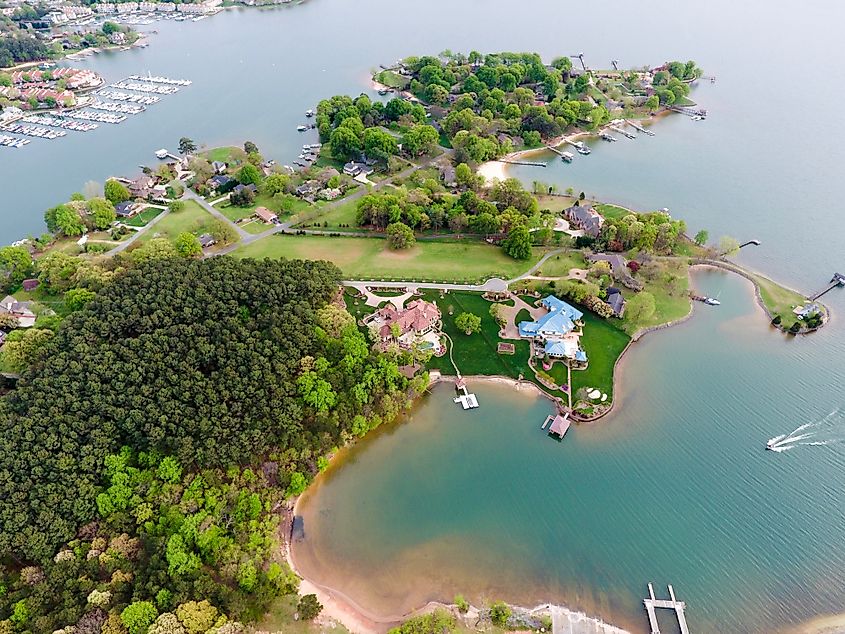
If you consider buying a house in Lake Norman, a little extra cash in your pocket is required. Prices of homes start from $ 240.000 to more than $ 1.000.000. The prices vary according to many criteria; if a residence at the Lake Front is what you seek, the price is very high. A small piece of information to keep in mind when you plan on settling there is the stories of ghosts! A bit creepy, right? Numerous sightings of spirits were reported at Holly Bend Plantation, Hopewell Presbyterian Church, Latta Plantation, and Oaklawn.
More Weirdness!
Since 1968, twenty UFO sightings have been reported, especially near nuclear plants. Similar stories narrate seeing an odd and big aircraft that made a little noise and then disappeared.
What Hides at the Bottom Of Lake Norman?
The land at the bottom of the lake used to belong around 1600 to the Catawba Indians. Wars and diseases were the cause of the death of the majority of the native Indians.
In the the1800s, many towns were built there. However, after many negotiations with the residents, the towns were shut down to create the Cowans Ford Dam and form the lake. Ruins of the Long Island Cotton Mill and Mill Village still rest at the bottom of the lake.
Remains of a summer camp in 1938 also rest underneath the lake. And in case you’re wondering why the dam was called after Cowan Ford, it’s because the site of the Cowan Ford’s Battle between General William Lee Davidson and Lord Cornwallis took place there in 1781.
Lake Norman State Park
In 1962, Duke Power Company donated 1,328 acres of land on which Lake Norman State Park was created. The park has a rich ecological history and is home to various animals, including amphibians and more than 35 species of mammals.
Airparks And Air Balloons
Most of the residents have their planes! Two airparks are located on the western side of Lake Norman, Long Island Airpark, and Lake Norman Airpark. Lake Norman Airpark was established in the 1960s, while Long Island Airpark was established in 1999.
Air balloons are a special and an old feature in the lake, especially in Statesville. For the past four decades, a hot air balloon festival has been held in Statesville, Carolina BalloonFest, where colored balloons fly to the sky all day. This festival is the second longest-running hot air balloon festival in the United States.
Activities

Scuba diving is the best activity in Lake Norman as it offers you the chance to discover another Atlantis. A fascinating museum lies underneath, for the old structures were never removed while building the lake. Old cemeteries, schools, homes, churches, an airplane, Long Island Mill and Village, Highway 150 Bridge, and other structures still exist at the bottom.
Fishing, paddle boarding, exploring the historic streets, hiking and biking are other pursuits that offer a satisfying experience.
When in a hurry, driving around the lake will take you about two hours.
A Getaway for Celebrities
The fantastic sceneries of Lake Norman have made it a home and a getaway for many celebrities. The most famous basketball player, Michael Jordan, and NASCAR driver, Denny Hamlin, own homes in Cornelius.
Filming of movies and TV shows occurred in the area, such as Homeland, Careful What You Wish For, and others.
Setting aside the ghosts and the UFOs, Lake Norman is a unique and charming destination that distinguishes North Carolina.
